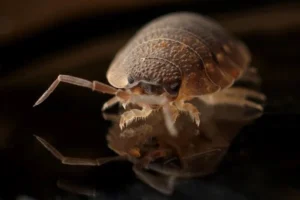Thanks to a cat… Discovery of an “unprecedented” virus that could pose a threat to humans

Reports have indicated the discovery of an unprecedented virus that may pose a threat to humans in the state of Florida, USA.
This virus belongs to the same family of viruses that cause measles and mumps, and it was discovered by researcher Dr. John Lednicky under unusual circumstances.
The story began when Dr. Lidnicky’s cat, named Pepper, dropped a common cotton mouse at his feet. As a molecular biologist, he decided to take the mouse to his lab for further testing.
Through examinations, a new type of the Gilon virus was discovered, which evolved from strains already present in Africa, Asia, and South America.
The researchers named the new virus “Gainesville Rodent Virus Geelong 1.” (GRJV1). When isolating the virus, they found that it was capable of replicating in monkey and human cells, indicating the possibility of the disease developing to affect people exposed to the feces of infected rodents.
Previously, it was believed that these viruses only infected rodents, but they have recently been found in bats and cats. This means that the virus has the ability to spread to other species, including humans, according to researchers.
So far, researchers have not been able to determine whether the new virus causes illness in humans, but Jilin viruses can sometimes lead to severe respiratory diseases, such as cough, fever, and difficulty breathing, although they are not known to be deadly.
The results raised questions about other diseases that may be transmitted from animals to humans.
In this regard, Emily de Reuter, a PhD candidate in the research team, explained: “We did not expect to discover a virus of this kind, and this reflects the understanding that many unknown viruses may spread in animals close to humans.”
However, Lidnicki confirmed that there is no need to worry excessively about this discovery. And even if the virus is capable of transmitting to humans, researchers are still uncertain about the severity of the disease.
He added that there are indeed viruses that are transmitted from rat droppings to humans, but infections are rare because most people do not frequently come into contact with wild rat droppings.
It is worth noting that the cotton mouse is a type of mouse that lives in swamps, forests, fields, and sand dunes in the southeast United States. It can sometimes appear in homes from Texas to Florida and Virginia, but it is considered more common in outdoor areas.
Research indicates that another group of rodent viruses, such as hantaviruses, affects about 30 Americans annually, causing symptoms like nausea, cramps, and fever.
The results of the study were published in the journal Pathogens.
Source: Daily Mail




